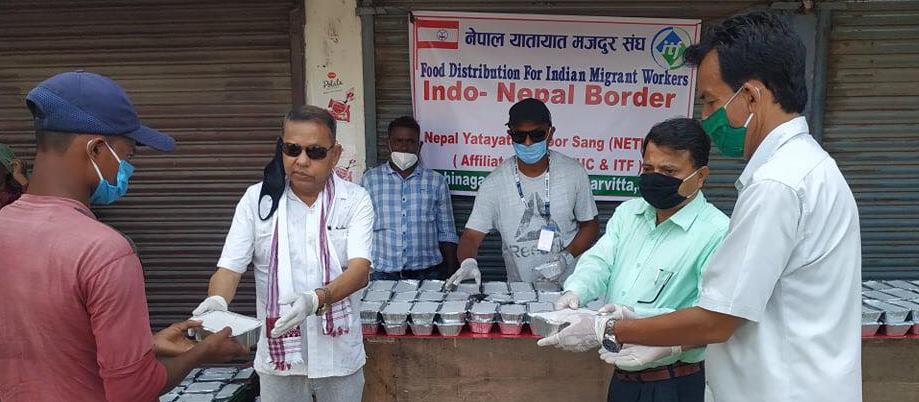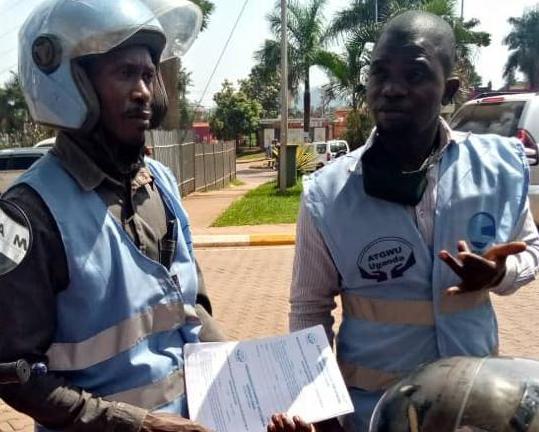
1 minute read
How have unions responded?
Emergency relief provided by NETWON in Nepal
EMERGENCY RELIEF
In many countries, all public transport was shut down and workers faced huge difficulties from food shortages. Governments failed to provide support, so unions and workers’ associations mobilised to provide immediate emergency relief.
In Nepal, for example, The Nepal Transport Labour Association (NETWON) mobilised its network of branches to distribute food to its members throughout the country, distributed PPE and negotiated with employers to provide free Covid testing in some workplaces. One NETWON branch near the border with India helped stranded Indian migrant workers with food.
In Kenya, the Public Transport Operators Union (PUTON) assisted drivers with cash loans and hospital fees drawn from its welfare fund, in which members had been regularly making contributions.
The National Union of Seafarers Sri Lanka (NUSS) distributed ration kits to over 100 app-based auto rickshaw and taxi drivers.
CAMPAIGNING
Many unions have also been taking to the streets to demand aid for informal workers. The SNTT transport union in Colombia led a major mobilisation through the streets of Bogotá demanding that the more than 4,000 informal buses (busetas and colectivos) be allowed to continue operations. The union strongly suspected that the authorities were taking advantage of the pandemic to finally remove the buses from the city and establish a monopoly for the Transmilenio Bus Rapid Transit system.
The National Confederation of Transport Unions (NCTU) in the Philippines demanded a basic income from government for the duration of the lockdown,when over a million informal drivers and operators of jeepneys, buses, taxis and tricycles faced hardship.
In Dakar, Senegal, informal transport workers went on strike in protest against government measures to reduce the number of passengers in vehicles. They demanded a reduction in both fuel prices and target payments to the owners [see p11].
In India, where all taxi services, including app-based cabs, were suspended, the Indian Federation of App-based Transport Workers (IFAT) successfully lobbied the government for a moratorium on loan repayments from app cab drivers working for Ola and Uber.
In a gesture of solidarity, the AIRF & NFIR Indian Railway Workers’ Unions provided IFAT drivers with ration kits and cash transfers to support them during this period.







